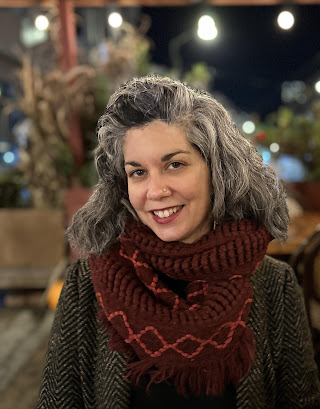from Report from the McCarthy Society, Vol. 1 No. 1
Inhabiting the dual roles of mother and researcher, Pattie McCarthy illuminates history with a kind of rawness, danger, and intimacy that we don’t always have the patience to see. She accomplishes this by reading deeply and broadly into the historical record, pursuing her curiosities, and using her ear and her eye to cull, magpie-like, the brightest bits of found language, then weaving them together into wondrously messy nests. In repurposing and recombining these fragments across a single sequence or a whole book, McCarthy ultimately constructs an argument out of a technique, the medium being very much the message: the past is infinitely strange, instructive, and fun to play with—and it is never over. Her inventive turning over and over of language is always breathtaking in its novelty, skilled as she is at creating new contexts for phrases and images to reappear, exhibiting the kind of creativity within restraint that is a hallmark of masterful poetry.
By embracing the fragmentary nature of both the historical record and of motherhood, McCarthy has developed a singular voice, even as that voice is constituted from—at this point in her career—hundreds of other voices. In the notes section of wifthing (Apogee Press, 2021) for instance, we learn that McCarthy incorporated (as is typical for her process) far-ranging materials from academic papers, primary sources like court depositions and accusations from the Salem witch trials, literature, news media, personal conversations, dictionaries. The found texts also include lines from more than a dozen other poets, from CAConrad to Geoffrey Chaucer. Yet McCarthy’s voice is recognizably her own, even as it is multiparous. The arts of curation and juxtaposition are where her hand is seen.
As much excavation of the historical literature as McCarthy can do, there will always be an unresolvedness, an uncrossable distance between the contemporary researcher-writer and their historical subject(s). What I have learned from McCarthy’s work is that intimacy is an action. We get out of history what we put into it: proximity, belief, respect, wonder, doubt.
These excerpts appeared, in slightly different form, in FENCE Digital’s Element series #10, “Finding the wifthing in Pattie McCarthy's Found-Text Sonnets (& in Pregnancy),” published online on June 25, 2021. They are reprinted here with the editors’ permission.
Sarah Heady is a poet and essayist interested in place, history, and the built environment. She is the author of Comfort (Spuyten Duyvil, 2022), Corduroy Road (dancing girl, 2021), and Niagara Transnational (Fourteen Hills, 2013). She is also the librettist of Halcyon, a new opera about the death and life of a women’s college, with composer Joshua Groffman and producer Vital Opera. Sarah is the recipient of residencies from the Corporation of Yaddo, In Cahoots, and Art Farm. Raised in New York’s Hudson Valley, she lives in San Francisco, where she co-edits Drop Leaf Press, a small women-run poetry collective. More at sarahheady.com.


